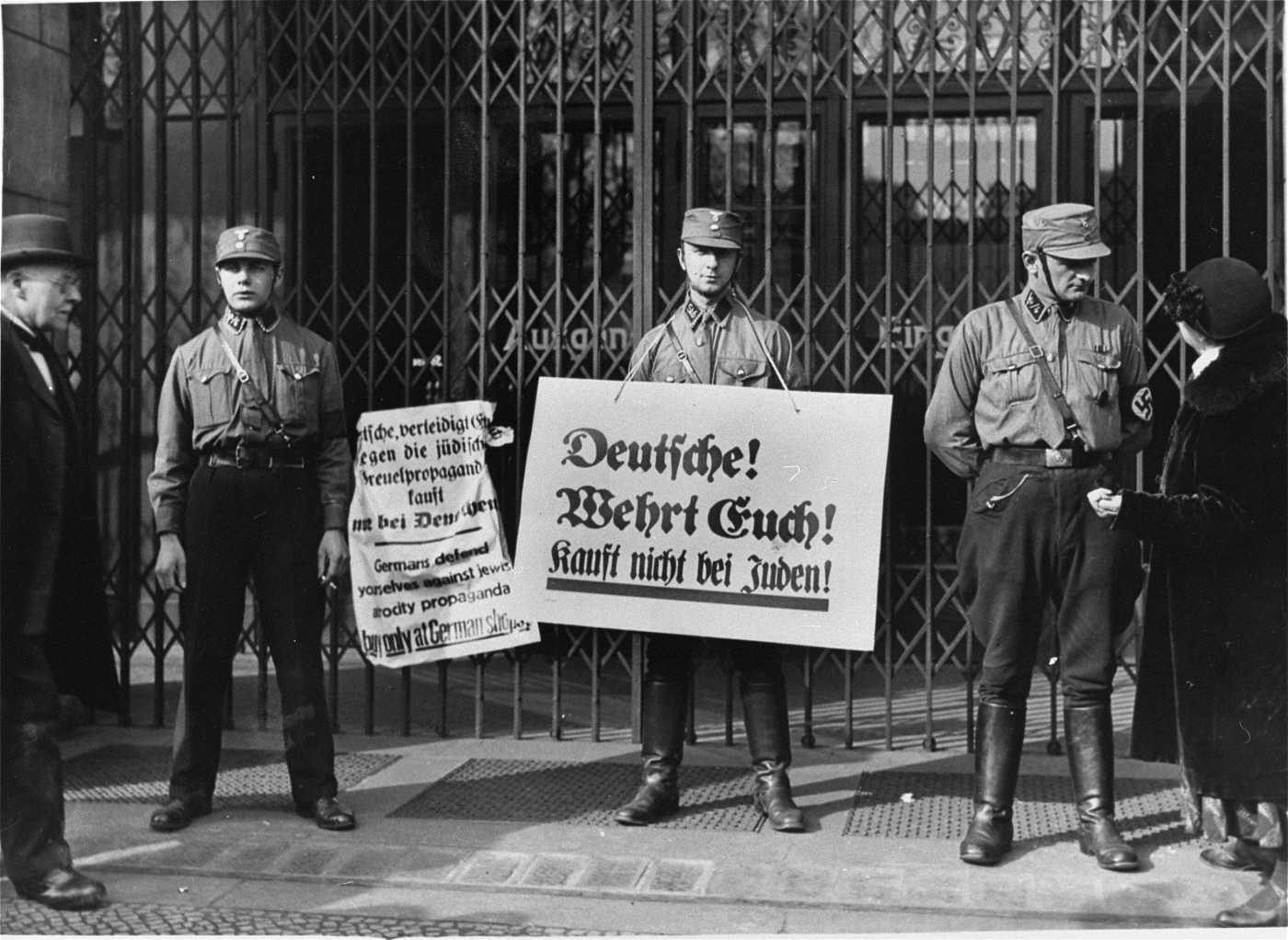
Nazis Boycott Jewish Businesses
In the first nationwide, planned action against Jews, Nazis boycotted Jewish businesses and professionals throughout Germany.
View newspaper articlesIn March 1933, the SA (Storm Troopers) attacked Jewish-owned department stores in German cities in an attempt to segregate Jews from the rest of society. Local police, not yet under Nazi control, unsuccessfully attempted to stop the attacks. Members of the SA continued the rampage and entered courtrooms, dragging Jewish lawyers and judges into the streets where they are subjected to humiliating public acts. International Jewish organizations and the press, which urged a boycott of German goods, publicized these attacks, and on March 27, 1933, anti-Nazi groups led by American rabbi Stephen S. Wise organized a massive rally at Madison Square Garden in New York City to protest Nazi persecution of political opponents, Jews, labor leaders, and others. In response, the Nazis organized the April 1, 1933, nationwide boycott of Jewish businesses in Germany, blaming Jews for the anti-German tone of the international press.
On the day of the boycott, Storm Troopers (Sturmabteilung; SA) stood menacingly in front of Jewish-owned department stores and retail establishments, and the offices of professionals such as doctors and lawyers. The Star of David was painted in yellow and black across thousands of doors and windows, with accompanying antisemitic slogans. Signs were posted saying, "Don't Buy from Jews" and "The Jews Are Our Misfortune." In some towns, the SA marched through streets singing anti-Jewish slogans and party songs. Throughout Germany, acts of violence against individual Jews and Jewish property occurred; the police intervened only rarely.
The official boycott began at 10 a.m. and ended at midnight. Although the national boycott operation, organized by local Nazi party chiefs, lasted only one day and was ignored by many individual Germans who continued to shop in Jewish-owned stores, it marked the beginning of a nationwide campaign by the Nazi party against the entire German Jewish population. A week later, on April 7, 1933, the German government enacted the Law for the Restoration of the Professional Civil Service, which restricted employment in the civil service to Aryans. Jewish government workers, including teachers in public schools and universities, were fired. Similar laws were passed in the following weeks affecting Jewish lawyers and doctors.
Newspaper Articles about this Event
4,048 articles in 686 newspapers
-
Mistreatment Ended, U.S. Not To File Its Protest
, The Staunton News-Leader/The Evening Leader, Staunton, Virginia -
Boycott Begins April 1 Against Germany Jews
, Honolulu Star-Bulletin, Honolulu, Hawaii -
ECONOMIC POGROM IS LAUNCHED
, The Hutchinson News, Hutchinson, Kansas
Learn More about this Historical Event
- The Boycott of Jewish Businesses (The Holocaust: A Learning Site for Students)
- Boycott of Jewish Businesses (Encyclopedia Article)
Bibliography
Friedländer, Saul. Nazi Germany and the Jews. New York: HarperCollins, 1997.
Schleunes, Karl A. The Twisted Road to Auschwitz: Nazi Policy Toward German Jews, 1933–1939. Urbana: University of Illinois Press, 1970.
Search tips
These dates and keywords are associated with this historical event.